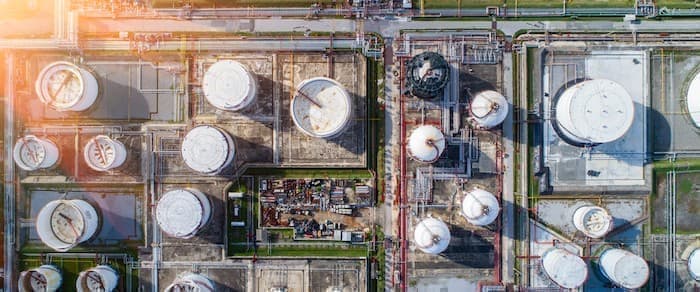The pandemic very likely hit the downstream oil even more severely than exploration and production and led to longer suffering. But now, things are finally beginning to look up for U.S. refiners as people take to the roads while oil prices retreat from multi-year highs reached earlier this year.
In late July, Reuters reported that refiners were about to report their first profitable quarter in a year as demand for fuels recovered almost to pre-pandemic levels in the world's largest consumer of oil. At the time, the top three refiners in the country—Valero, Phillips 66, and Marathon Petroleum—were seen reporting a combined $675 million in profits.
Now, the Wall Street Journal reports more good news for refiners that would increase their chances of having another profitable quarter despite analyst worries expressed earlier this year. Prices at the pump have rallied strongly, prompting President Biden to call on OPEC+ to boost production, which U.S. refiners probably disagreed with. Demand for gasoline has been strong since the start of summer driving season. This may change with the end of the season, but it won't change as drastically as it did last year, in all probability.
According to the Wall Street Journal, refiners' profit margins, which are an expression of the difference between crude oil and gasoline futures, stood at $25.58 per barrel as of yesterday. This was close to the highest margin recorded since 2016. No wonder refineries are operating at more than 90 percent of capacity, compared with around 80 percent earlier this year.
Indeed, the latest figures from the Energy Information Administration confirm the improved outlook for the industry. In the August edition of its Short-Term Energy Outlook, the EIA said gasoline consumption in the United States had recovered to 8.6 million bpd in the first half of the year, from 8.3 million bpd for the same period of 2020. Yet this was still far below the 9.3 million bpd consumed during the first half of 2019.
Be that as it may, the EIA also noted in its report that during May, June, and July, gasoline consumption was stronger than expected, prompting it to forecast full-year recovery to 8.8 million bpd, climbing to 9 million bpd next year as employment rebounds and with it mobility increases. But because many will still opt for remote work, the EIA said in its report, recovery in gasoline demand to 2019 levels was unlikely in 2022.
That's all good news for refiners. Thanks to strong gasoline demand, the top three players in the field greatly exceeded analysts' profit predictions for the second quarter, with Marathon alone reporting more than the combined $675 million analysts had estimated. The refiner booked profits of $751 million for the second quarter of the year, and Valero reported $361 million, swinging back into the black.
Related: U.S. Natural Gas Dominance May Be Coming To An End
Despite the rebound in the refining industry this year, challenges remained. The biggest among these appeared to be costs associated with renewable fuel credits. According to the WSJ, Valero reported a loss at its refining business for the second quarter because of higher renewable credit costs. Yet a bill recently introduced in Senate might change that, although the change may be for the worse from refiners' perspectives.
A group of Republican and Democratic senators last month proposed a bill seeking to end the ethanol biofuels mandate from the Renewable Energy Standard. The reason: "Corn ethanol achieves little to no reductions in greenhouse gas emissions. It's time to end the mandate and instead support more advanced biofuels and biodiesel," according to one of the sponsors of the bill, Senator Dianne Feinstein, as quoted by Argus.
There will be clearly no escape from some sort of biofuel blending and the associated costs for refiners. But as long as demand for their products remains strong, bottom lines should be safe.
By Michael Kern for Oilprice.com
More Top Reads From Oilprice.com:
- Gazprom: Nord Stream 2 May Supply Gas To Europe This Year
- Semiconductor Shortage Puts World’s Largest Automaker At Risk
- Biden Faces Off With Big Oil Over Drilling Auctions



















It's added as an oxygenator. To reduce the local health impacts of car emissions.